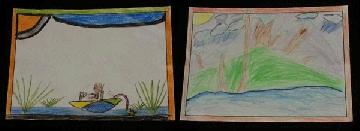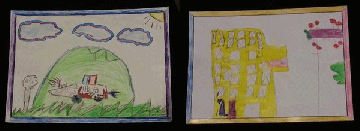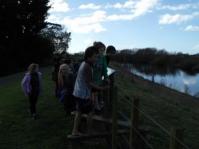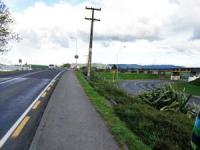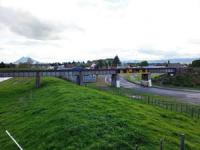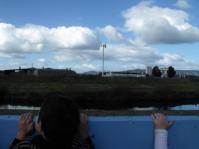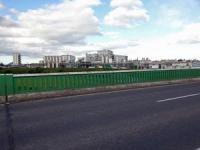Home-Discovering Edgecumbe
- Our Class - Room 7
- Learning outcomes
- Research Process
- What was Edgecumbe like 100 years ago?
- What was Edgecumbe like when your Grandparents (or Great Grandparents) were young?
- What was Edgecumbe like when our Parents were young?
- What is Edgecumbe like today?
- Our Local Heroes - the Community
- Our Interview with Mrs Davey-Emms
- Our Interview with Mrs Reid
- Our Art
- References and acknowledgements
What was Edgecumbe like 100 years ago?
One of the key questions we asked was broken into two parts:
1. What did the children THINK Edgecumbe was like 100 years ago?
2. What WAS Edgecumbe like 100 years ago?
Here are our answers.
1. What did the children THINK Edgecumbe was like 100 years ago?
The children thought:
*That the Māori people lived around the area in huts.
*There were only dusty dirt roads to drive your car on.
*The cars were the old ones like in the movies.
*Edgecumbe was really, really small and not many people lived in the Edgecumbe town.
*Edgecumbe town wasn't really a town but just a place with a shop.
Here are some of their pictures they drew before we found out some of our information!
2. We found out:
*Edgecumbe was once called Rangitaiki - named by Toroa, the captain of the Mataatua canoe when the Maori people first came to Edgecumbe. It means 'Passage to the next world'.
*When the European settlers arrived to Edgecumbe, they called the small settlement Riversleigh. Later on, when more people began living in this area, they changed the name to Edgecumbe at the beginning of the 20th Century.
The people thought of different names they would change Riversleigh to like, Rangitaiki (because the plains around Edgecumbe were named the Rangitaiki Plains), Putauaki (after the nearby volcanic mountain near Kawerau) or Riverslea. Edgecumbe is the name that was given to Putauaki by Captain Cook in 1769!
*Yes there were Māori people living in Edgecumbe near the Rangitaiki River but Edgecumbe had really been a very big swampy area with only some patches of land that could be big enough to live on.
*The settlers and Māori tribes that lived in the Edgecumbe area, began to drain the water away from the land and then it became nice farming land...but today, when it has been raining for a while, the areas around Edgecumbe will begin to flood.
*Once upon a time, the only way to get to Edgecumbe was by an unmetalled road from Te Teko (you had to come past Awakeri and then through Te Teko) or by catching a small ferry service from the Awakeri side of the riverbank. There was no bridge to go across the river from Awakeri into Edgecumbe, but there is today.
*The railway bridge and the bridge into Edgecumbe was finished in 1920
*In 1914, children had to go to school in a barn on the Western bank of the Rangitaiki River because the children going to school near Thornton had to cross the Thornton River, but they had to stop because it got too dangerous! Then they moved to a one-room school where Otakiri road (originally named Riversleigh road) met the Te Teko Road in 1915 but Edgecumbe Primary School finally was moved to where it is today...on College Road next to the Edgecumbe College (but the College came in 1962).
*Also in May 1914, the Rangitaiki River went straight out to sea through a new channel that was specially made!
*Before then, the river went into the big swamp area (remember, this is now farmland!) and the swamp had smaller rivers going out to the sea where Matata is and also the river went into the Whakatane River (this is also known as Ohinemataroa - its original name). In 1917, a new cut had also been made to allow the Tarawera River to meet up with the Rangitaiki River!
*Once the land became good enough for farming or dairy work, in 1912 in an area near Edgecumbe (Otakiri), settlers joined together to make the Tarawera Co-Operative Dairy Company and they began to make cheese. But in 1915, in another little area near Edgecumbe (Awakeri), settlers there made a company called the Rangitaiki Plains Dairy Company so they could make cheese! In 1922, these two companies joined together and bought good land in Edgecumbe. In 1923 they opened and they called this company the Rangitaiki Plains Dairy Company that began to make butter. They became one of the biggest dairy factories in New Zealand! Today the RPD is part of Fonterra.

